July is a special month for the people of South Sudan during which they celebrate their independence as the most important achievement in their political struggle. Also in July, they commemorate together with the marginalized people of Sudan the loss of their Great Leader, Dr John Garang. As 9th of July is approaching, the people… Read more »
The Rise of Political Buddhism in Myanmar
Narrow Burman-Buddhist nationalism remains the country’s biggest barrier to sustainable political reform.
The Organization for the Protection of Race and Religion, known by the Burmese acronym Ma Ba Tha, is gaining ground in Myanmar. It has also been receiving increased international attention—last month for its proposal to ban Muslim headscarves in public schools.
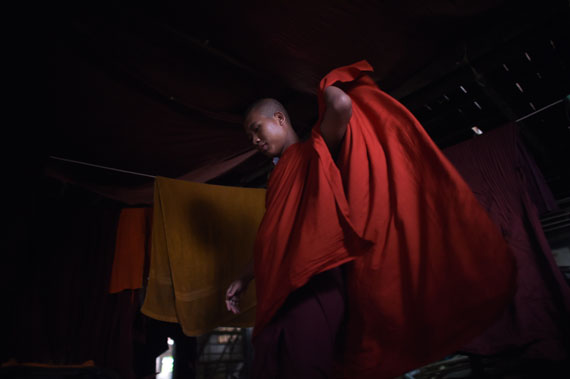
A Buddhist monk adjusts his robe at a monastery affiliated with the Ma Ba Tha (Organization for the Protection of Race and Religion) on the outskirts of Yangon. The Ma Ba Tha organization, mainly active in Yangon and the northern city of Mandalay, promotes hardline Buddhist nationalism in Myanmar.
The organization was founded in 2014, when central figures from the more widely known 969 movement started campaigning for four laws to ban polygamy, restrict interfaith marriages and religious conversions, and enforce birth control measures among groups with high rates of population growth. All four laws, which are aimed at Myanmar’s Muslim population, passed parliament earlier this year. The new initiative to legally ban Muslim headscarves in public schools is the group’s latest.
This Week in South Sudan – Week 25
Saturday 13 June Riek Machar had several consultative meetings with UN and AU representatives and other African leaders on the sidelines of the African Union summit in Johannesburg, South Africa. The South Sudanese government rejected the new IGAD power sharing proposal with the SPLM (IO) claiming it undermined national unity and social cohesion. A UN… Read more »
Equality in North-South Research Collaboration
Research collaboration across Global South-North divides is an articulated aim in many academic institutions. In this blog we point to the value added, as well as some of the challenges of such collaboration, based on our experiences from collaborative research on migration and transnationalism in Pakistan and Norway.
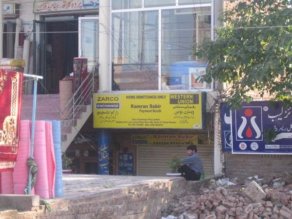
Fieldwork in Pakistan. Photo: Marta B. Erdal, PRIO
We are writing this blog post as our co-authored article appears on ‘early view’ ahead of publication in the journal Population, Space and Place. Our article is the result of longstanding collaboration between us, as young researchers.
In this blog post we reflect on our experience of research collaboration, and the challenges of striving for an equal research partnership. Research collaboration across geographic borders is important for quality in knowledge production, and a key condition for realizing ambitions of co-production of knowledge.
But the co-production of knowledge in practice is associated with a number of challenges and obstacles.
From IDPs to Victims in Colombia: Transition from Humanitarian Crisis through Law Reform?
What are the challenges of responding to displacement as a problem of transitional justice? In the Colombian context, pervasive violent conflict coexists with constitutional democracy. In recent years, the legal framework for dealing with internal displacement has been altered by the 2011 Victims’ Law. Based on newly published work on Colombia, this blog post discusses the changing conditions for displaced women’s legal mobilization.
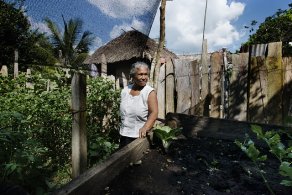
Internally Displaced in Colombia. Photo: EC/ECHO/FAO
Imposing the rule of law in post-conflict situations has often been seen as a means of filling normative voids that both enable and result from conflict. Colombia offers a unique opportunity to reflect critically on how progressive legal frameworks — particularly those that formally and extensively incorporate international law — fare in practice.Read More
PRIO Global Fellow, Luka Biong Deng: ‘The AU Commission of Inquiry on South Sudan: justice first or peace? ‘
With the eruption of conflict in December 2013 and the subsequent serious human rights violations committed, the AU Peace and Security Council in its meeting on 30th December 203 at the level of heads of state and government held in Banjul, the Gambia, resolved to establish a Commission to investigate these violated human rights and… Read more »
The “Resister’s Toolkit”
In his article in the May 2015 issue of APSR, Evgeny Finkel makes a splash by arguing that exposure to “selective repression” (such as surveillance, beatings, arrests, and torture) helps dissidents to develop a robust skill set with which to maintain enduring resistance later on. He supports this argument with data from an unlikely case—Nazi repression against three Jewish ghettos during the Holocaust—and shows how operational skills (the “resister’s toolkit”) often develop as an indirect result of past exposure to state repression. These skills then help dissidents to remain active in resistance even when the state is engaging in widespread, indiscriminate, and severe repression. I’ll direct you to Finkel’s article for more detail on the argument, data, and findings.
![Suffragette Emmeline Pankhurst being arrested after protesting in London [1907-1914]. Via the National Archive of the Netherlands.](http://blogs.prio.org/wp-content/uploads/2015/06/pankhurst-292x399.jpg)
Suffragette Emmeline Pankhurst being arrested after protesting in London [1907-1914]. Via the National Archive of the Netherlands.
- “establishing secure communications channels;
- procuring weapons without being detected by government agents;
- maintaining well-hidden meeting places and munitions cashes;
- producing high-quality forged identification documents; and
- being able to identify and neutralize informers and government agents trying to infiltrate the organization” (341).
These all make sense from an operational perspective. Intuitively, maintaining organizational viability would be a necessary (but insufficient) condition for sustained rebellion. The key insight, I think, is that Finkel views these skills as learned. People can teach, experience, develop, perfect, and sustain them.
If that’s true for violent resistance, maybe it’s true for nonviolent resistance as well.
Endangered Co-Existence: Buddhist-Muslim Friction in Asia
Disputes about everything from holy sites to ritual animal slaughter and compulsory family planning are causing dangerous tensions between Buddhists and Muslims in countries such as Sri Lanka and Myanmar.
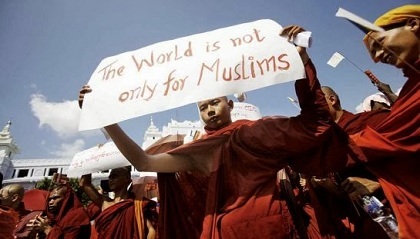
Friction between Buddhists and Muslims in Southeast Asia is putting pressure on a centuries-long tradition of religious co-existence, tolerance and shared cultural values.
Hate speech, violence involving Buddhists and Muslims, attacks on religious minorities, and new laws designed to control religious conversion, family planning and interfaith marriage are now contributing to increased conflict in the region.Read More
Back in Business? Diaspora Return to Somalia
In most post-conflict contexts, returning diaspora members contribute to reconstruction efforts; including through investments in businesses.
While many invest in traditional ventures, others introduce new ideas for entrepreneurship. In Somalia, diaspora businesses are visible and valued; especially for their development and peacebuilding potential. The conflict has affected Somali citizens inside and outside the Somali region for over 25 years. With the cautious optimism about developments in south-central Somalia in the last few years, however, we see the number of people returning to the region increasing considerably. Full daily flights into Mogadishu offered by Turkish Airlines attest to this.
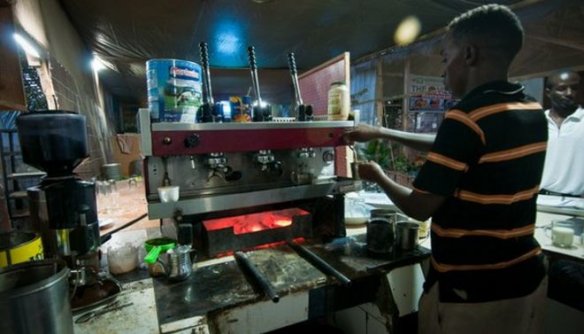
Living in a recovering failed state like Somalia means being innovative. At The Village Restaurant, a popular open-air hangout for Mogadishu’s returning diaspora community, a charcoal-powered Italian espresso machine brews Somalia’s best cappuccino. Photo: BBC
EU is paying attention to Arctic security matters
EUISS has just published a report entitled Arctic Security Matters concluding that the EU, “as a distinctly ‘soft’ security actor”, could play a useful role “in attempts to build up mutual trust and to give assurances that military assets in the Arctic create stability”. The bottom lime is “While much of this positive assessment of the… Read more »